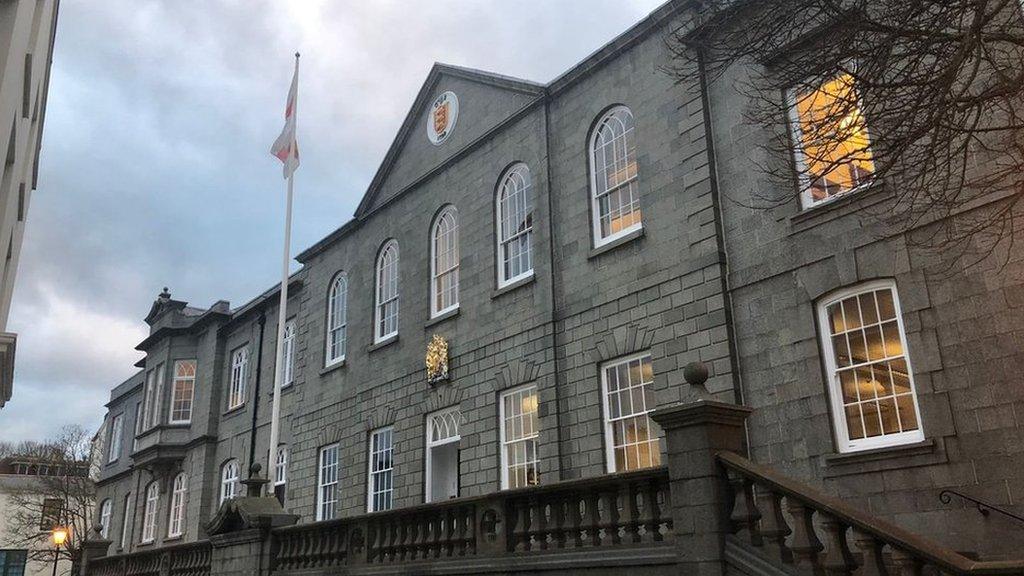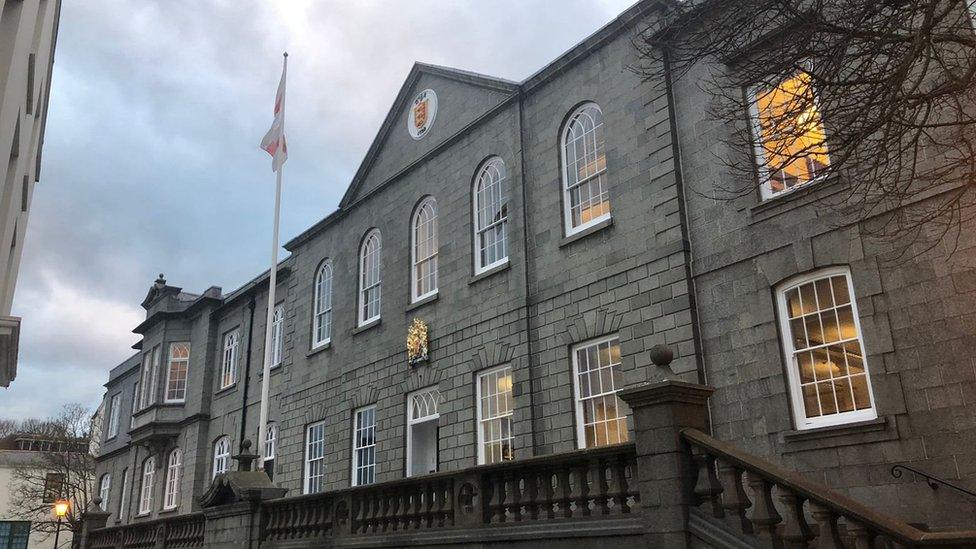Guernsey States: If not GST, then what?
- Published

A number of proposals are due to be debated this week
Guernsey faces a projected long-term financial deficit of £100m, caused by people getting older and using States services for longer.
The Policy and Resources Committee (P&R) has warned there is not the money to pay for planned building projects.
Guernsey's politicians will this week debate States priorities and the future of government finances.
They will also discuss funding options for capital projects like the hospital extension and a new post-16 campus.
P&R has put forward three plans for the future, while a number of other deputies have proposed changes to the committees' plans.
P&R preferred plan (Scenario 3)
P&R has come back to the States, after defeat in February, with similar plans for tax reform.
Its preferred scheme centres on a 5% goods and services tax (GST), alongside a new lower rate of income tax for earnings below £30,000 and reforms to social security contributions in an effort to mitigate the regressive impact of a GST.
The plan also includes £350m of new borrowing, which would be used to fund capital building projects.
All three of P&R's options include plans to save about £10m and raise up to £25m a year from corporate tax reform, and motoring related taxes like paid parking.
Savings and no GST
After coming closest to getting their scheme over the line in February, former Deputy Chief Minister Heidi Soulsby and Deputy Gavin St Pier have proposed another set of reforms which focus on making savings and tax reforms and don't include a GST.
They have asked for the 2025 budget to include £4m of savings, changes to corporate tax, with vehicle and parking taxes raising between £10-£15m per year alongside work on a tourism tax.
Deputy Soulsby said their plan provides the most "balanced approach" compared to P&R's "all or nothing" proposal.
Income Tax
Former Chief Minister Lyndon Trott and Guernsey's current longest serving politician Deputy John Gollop have presented what they're calling a "lifeboat" proposal which they hope could provide an option for the States if it fails to agree any of the other options.
Their proposal is centred on increasing income tax by 2% next year to raise an extra £32m, and by another 1% to raise £16m more a year from 2025.
Deputy Trott said: "The States will not support the introduction of a GST and they may not support borrowing, so we want the States to have the opportunity to walk away with something."
Territorial corporate income tax
Former Treasury Minister Charles Parkinson has been a long-term advocate of corporate tax reform.
His proposals would introduce a new territorial rate of income tax with a general rate of 10% to 15%, to replace the current zero/10 regime.
Currently all companies, both international and domestic, pay 0% corporate tax, except for financial institutions, which pay 10%.
A territorial income tax rate would see international businesses pay taxes to the countries in which they are located and earn their income.
Will P&R get its proposals approved?
The number of proposed changes to P&R's preferred plan suggests there is not a consensus within the States.
Ultimately, while P&R's tax package claims to be progressive and mitigate the impact of a GST - it's those three letters which will dominate debate.
There is a good portion of the island's politicians, who with 19 months to a general election, will simply not go near it - they're either ideologically opposed or fear the impact at the ballot box.
Because of that, P&R faces an uphill struggle to find the votes it needs to get its plan over the line.

Follow BBC Guernsey on Twitter, external, and Facebook, external. Send your story ideas to channel.islands@bbc.co.uk, external.
Related topics
- Published17 February 2023

- Published8 February 2023
